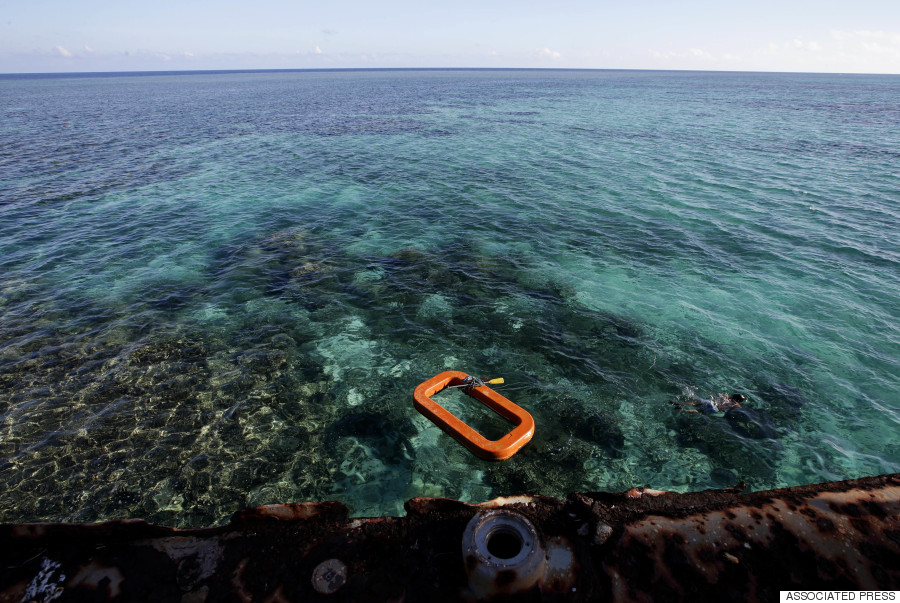
After months of mounting speculation, the Permanent Court of Arbitration delivered its ruling on July 12 in the Philippines' case against China over maritime disputes in the South China Sea. The tribunal ruled unanimously that Beijing's attempt to turn the South China Sea into its own virtual lake violated international law, issuing a sweeping finding that Chinese claims to exclusive sovereignty over all the islands and shoals within the nine-dashed line -- which encompasses 86 percent of the sea -- have no legal basis. Prior to the ruling, the United States and its allies had already started criticizing China for pledging to ignore the final decision -- which one Chinese official derided last week as, "nothing more than a piece of paper." Sure enough, Chinese President Xi Jinping immediately rejected the decision. Going further, his foreign minister referred to it as a "political farce," while China's ambassador to the U.S. accused the PCA of "professional incompetence."
It may seem un-American to ask whether China should do as we say, or, by contrast, as we do. But suppose someone were bold enough to pose that question. The first thing they would discover is that no permanent member of the U.N. Security Council has ever complied with a ruling by the PCA on an issue involving the Law of the Sea. In fact, none of the five permanent members of the U.N. Security Council have ever accepted any international court's ruling when (in their view) it infringed on their sovereignty or national security interests. Thus, by rejecting the court's decision, China is doing just what the other great powers have repeatedly done for decades.
By rejecting the court's decision, China is doing just what the other great powers have repeatedly done for decades.
From the day the Philippines went to court, China has argued that the PCA has no legitimate jurisdiction on this issue since it concerns "sovereignty" -- which the text of the Law of the Sea treaty explicitly prohibits tribunals from addressing. When the court rejected China's objection, Beijing refused to participate in its hearings and made it clear that it would ignore the PCA's ruling. The United States and others have criticized Beijing for taking this stance. But again, if we ask how other permanent members of the Security Council have acted in similar circumstances, the answer will not be one we like.
When the Netherlands sued Russia after the latter's navy boarded and detained the crew of a Dutch vessel in waters off of the Russian coast in 2013, Moscow asserted that the court had no jurisdiction in the matter and refused to participate in the hearings. It also ignored a tribunal's order that the crew be released while the dispute was being resolved. After the PCA ruled that Russia had violated the Law of the Sea and ordered Moscow to pay the Netherlands compensation, Russia refused.

Anticipating the court's ruling in the case brought by the Philippines, then U.K. Prime Minister David Cameron proclaimed: "We want to encourage China to be part of that rules-based world. We want to encourage everyone to abide by these adjudications." Perhaps he had forgotten that just last year the PCA ruled that the U.K. had violated the Law of the Sea by unilaterally establishing a marine protected area in the Chagos Islands. The British government disregarded the ruling, and the marine protected area remains in place today.
The United States has never been sued under the Law of the Sea because -- unlike China -- Washington has not ratified the international agreement and is thus not bound by its rules. Chinese commentators have already emphasized this point in the mutual recriminations that have followed the court's announcement.
If we ask how other permanent members of the Security Council have acted in similar circumstances, the answer will not be one we like.
The closest analogue to the Philippines case involving the United States arose in the 1980s when Nicaragua sued Washington for mining its harbors. Like China, the United States argued that the International Court of Justice did not have the authority to hear Nicaragua's case. When the court rejected that claim, the United States not only refused to participate in subsequent proceedings, but also denied the court's jurisdiction on any future case involving the United States, unless Washington explicitly made an exception and asked the court to hear a case. If China followed that precedent, it could withdraw from the Law of the Sea Treaty altogether -- joining the United States as one of the world's only nations not party to the agreement.
In the Nicaragua case, when the court found in favor of Nicaragua and ordered the United States to pay reparations, the U.S. refused, and vetoed six U.N. Security Council resolutions ordering it to comply with the court's ruling. U.S. Ambassador to the U.N. then, Jeane Kirkpatrick aptly summed up Washington's view of the matter when she dismissed the court as a "semi-legal, semi-juridical, semi-political body, which nations sometimes accept and sometimes don't."

Observing what permanent members of the Security Council do, as opposed to what they say, it is hard to disagree with realists' claims that the PCA and its siblings in The Hague -- the International Court of Justice and the International Criminal Court -- are only for small powers. Great powers do not recognize the jurisdiction of these courts -- except in particular cases where they believe it is in their interest to do so. Thucydides' summary of the Melian mantra -- "the strong do as they will; the weak suffer as they must" -- may exaggerate. But with the court's ruling this week against China, it is no surprise that Beijing has chosen to respond just as other great powers have traditionally done.
An earlier version of this article appeared in The Diplomat.
Also on WorldPost:


